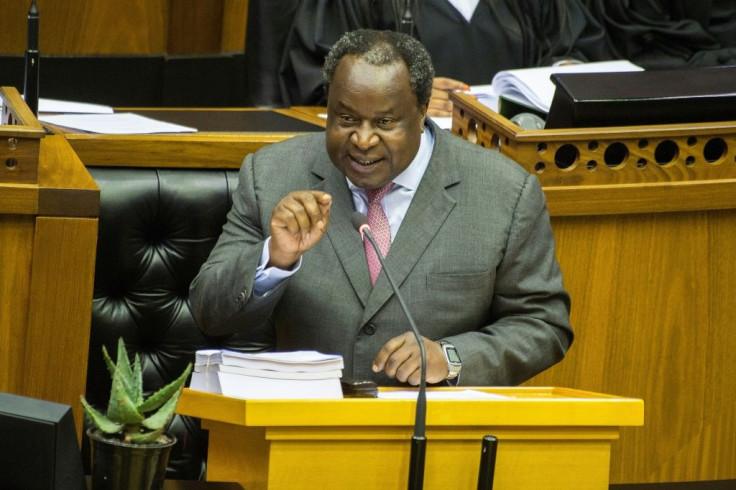S.Africa To Boost Spending On Vaccine And Job Creation
South Africa's government on Wednesday announced plans to allocate $688 million for coronavirus vaccines and $756 million to boost youth employment, to counter economic setbacks brought by the pandemic.
Finance Minister Tito Mboweni unveiled the 2021 fiscal spending plans in an annual national budget speech to parliament.
Money is particularly short for the South African government this year, as the continent's most industrialised economy struggles with the impact of the coronavirus pandemic on top of a recession.
Significant tax hikes were announced to bridge "the largest tax shortfall on record" and fund a 1.35 trillion rand ($93 billion) budget for 2021-22.
"We are allocating more than 10 billion rand ($688 million) for the purchase and delivery of vaccines over the next two years," Mboweni announced.
The contingency reserve will be increased from five to 12 billion rand to fund further vaccine purchases and "other emergencies", he added.
An additional 11 billion rand will be added to a 100-billion-rand initiative to boost youth employment.
Mboweni normally delivers his national budget speech alongside a potted aloe vera plant, highly resistant to drought, as a symbol of South Africa's economic resilience. However the plant was not there this year.
South African unemployment soared to 32.5 percent in the fourth quarter of last year, the highest level since the data was first recorded in 2008.
Most of the latest increase occurred among workers aged between 25 and 34, followed by the 15-24 group.
"The damage caused by Covid-19 runs deep and we share in the collective pain of many South Africans who have lost their jobs," the minister said.

South Africa is the country hardest-hit by the coronavirus in Africa.
Last March, it imposed one of the world's strictest lockdowns, and measures taken to stem the spread of the virus, including a six-month border closure, blocked tourists and foreign capital.
South Africa was already in recession before the pandemic and its public debt is now expected to exceed 80 percent of gross domestic product (GDP) this year.
"Our public finances are dangerously overstretched," Mboweni warned, adding that the government would have to borrow "well above" 500 billion rand until at least 2024.
But he said the 2021 budget framework would put South Africa "on course to achieve a primary surplus", which excludes interest paid on government debt, and stabilise public debt at 88.9 percent of GDP in 2025.
South Africa's economy is expected to rebound by 3.3 percent this year after a 7.2-percent contraction in 2020, the minister said.
Ahead of the budget speech, trade unions staged a strike to protest the high level of unemployment and chronic corruption.
At Chris Hani Baragwanath Hospital in Johannesburg's Soweto township, about 100 members of the South African Federation of Trade Unions picketed at the hospital's gate in solidarity with overstretched and underpaid medics.
"Employers have taken advantage of the Covid situation to retrench people... the finance minister must wake to the reality that people are losing jobs," said 48-year-old City Bokaba, a union official.
The national treasury has proposed raising personal income tax rates and increasing excise duties on alcohol, fuel and tobacco products.
The Democratic Alliance, the country's largest opposition party, criticised the proposal saying it would "increase the cost of living for every South African".
The party also lambasted the vaccine rollout plans as "inadequate" and "too slow, too little, too late".
© Copyright AFP 2024. All rights reserved.





















